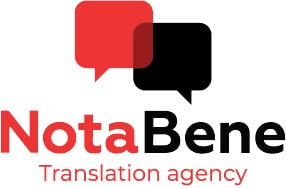How to get ready for website translation?

A company’s website is its virtual office and presentation. Translation of online content must be performed by a professional linguist. After all, it is the company’s website that creates and maintains its image in the eyes of foreign customers. Website translation is a task best left to an experienced agency such as Nota Bene Translation Agency in Warsaw. How is such a translation order handled?
Why does website translation matter?
Surveys conducted among buyers from various countries show that most of them prefer shopping on a website that offers a version in their own language. This facilitates order placement and eliminates any doubts that may arise, for example, at the stage of payment. However, translation alone is not enough. Website content should be adapted to the mentality and preferences of the people from the target country. In other words, not only translation is required, but also its localization. This is the process where content — and in the case of a website, other components such as the layout of graphic elements — are adapted to the requirements of customers from a particular cultural background. This makes a company’s offer more believable and convincing. Therefore, before entering a new market, you need to translate your website.
Translation from the prism of linguistics
A corporate website must perform a specific task. Therefore, it is important to determine what sort of effect the website should produce. Sometimes companies offering completely new products want a translator to use specific phrases. At this stage, all sorts of glossaries with key terms are extremely useful. Such glossaries can be created by a translator, or materials can be provided by the customer. Sometimes the client wants to post detailed information about the product range. In this case, translations of the documentation or specialized translations are required if the company addresses its proposal to specialists.
Intercultural differences
Slogans, trademarks and even colors have completely different meanings depending on the culture of a particular country. Therefore, when translating a website, it is necessary to include mentality features. First of all, it is important to consider the potential audience of the website and what information it expects to receive. This adaptation applies not only to the content itself, but also to other elements on the page — graphics, images, and buttons. In case of website translation, the most important thing is to make the translation sound as attractive as possible. Therefore, it is worth considering the preferences of recipients in a particular market. Only then will it benefit the company that way it wants.
What is hidden in the code?
Web pages are written in special programming languages that are interpreted by browsers. Translations of a website include not only the translation of the visible layer, but also what is contained in the source code. Therefore, a translator needs to extract the elements that need to be translated — for example, descriptions of graphics. To this end, a translation agency requires access to the administrative panel, which often calls for an NDA. At the very end, you also need to check whether the site works after the translation and whether all elements in a foreign language are displayed correctly.
What else do you need to know when translating a website?
Not all content needs to be translated. Foreign clients are unlikely to be interested in recent news or info about local companies. Therefore, before submitting your website for translation, consider which sections should be translated. This will help you cut unnecessary costs. However, first of all, you should choose a professional offer, that is, a translation agency with positive reviews. Such an agency should only engage professional linguists. It is also necessary to use industry-specific tools such as CAT software. This makes web translation much faster and ensures terminology consistency






